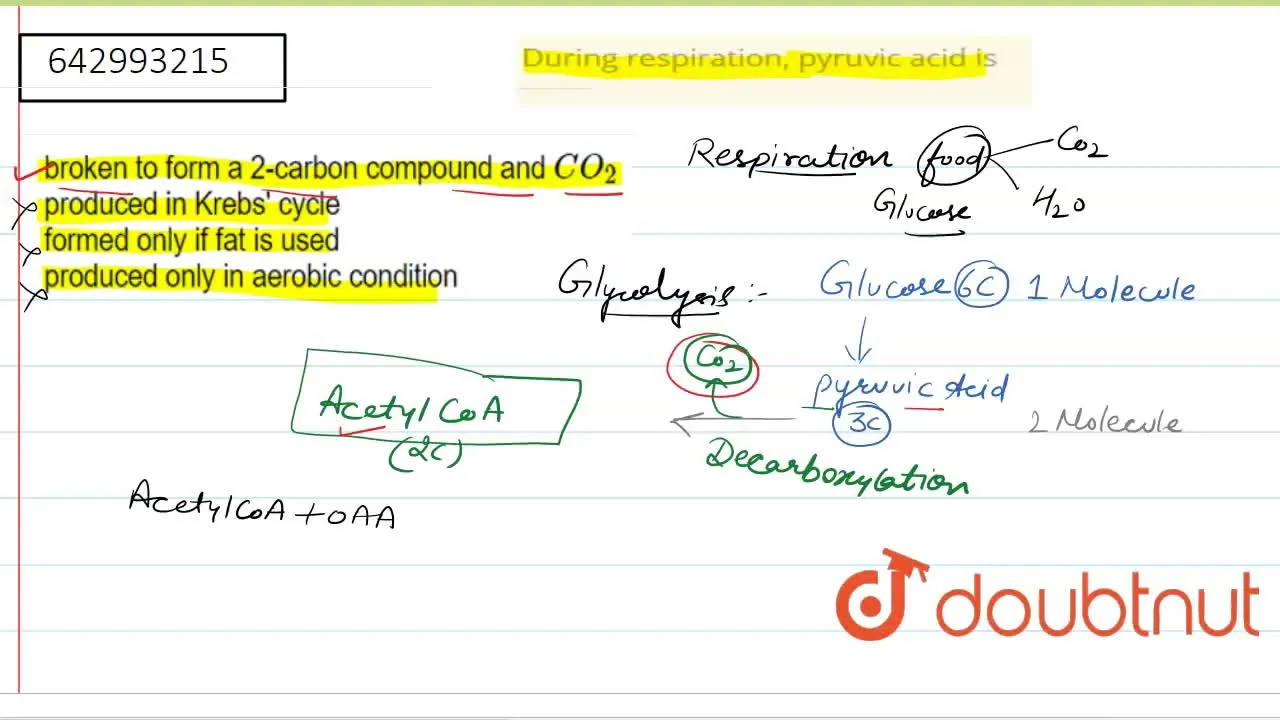During respiration, pyruvic acid is
broken to form a 2-carbon compound and CO2
produced in Krebs' cycle
formed only if fat is used
produced only in aerobic condition
The correct Answer is:A
2-C compound is Acetyl Co-A (active acetate).
Related Playlists
Similar Questions
In anaerobic respiration, pyruvic acid in muscles forms
View SolutionIn muscles during exercise, when oxygen is inadequate for cellular respiration pyruvic acid is reduced to
View SolutionAssertion : During aerobic respiration, pyruvic acid formed as a result of glycolysis, undergoes phosphorylation reaction to form acetyl CoA.
Reason : There is net gain of 18 ATP molecules during aerobic respiration of one molecule of glucose.View Solutionin how many steps CO2 is released in aerobic respiration of pyruvic acid
View SolutionDuring respiration there is :
View SolutionDuring vigrous exercise, when oxygen is inadequate for cellular respiration , reduction of pyruvic acid is catalysed by
View SolutionEnergy liberated during respiration is stored as
View SolutionEnzyme helping in oxidative decarboxylation of pyruvic acid is
View SolutionFor formation of ethanol, pyruvic acid is first changed to acetaldehyde by enzyme
View SolutionDuring respiration, when energy is released, _______ and ______ are also produced.
View Solution


